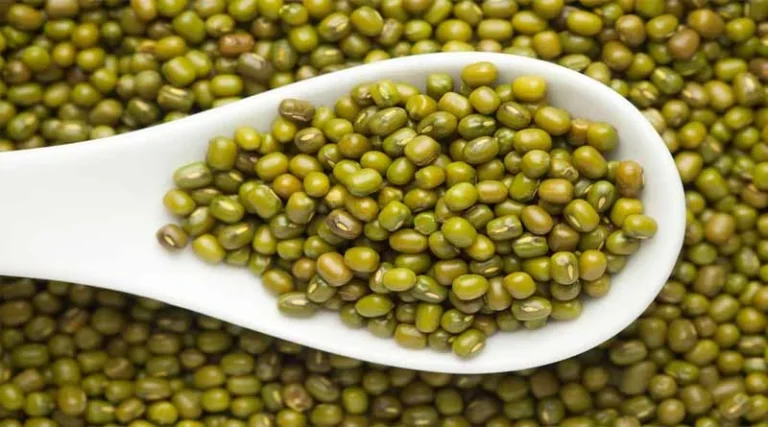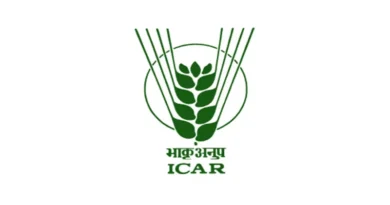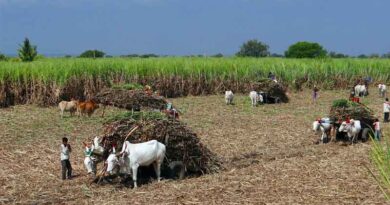
Madhya Pradesh Government Declines Moong Procurement; Cites Herbicide Use as Key Concern
Farmer protests likely to intensify as state refuses to send MSP proposal to Centre
06 June 2025, New Delhi: In a significant development that could affect thousands of pulse farmers across Madhya Pradesh, the state government has officially decided not to initiate procurement of moong (green gram) at the Minimum Support Price (MSP) for the 2025–26 marketing season. This decision comes despite a bumper crop this summer and widespread anticipation among farmers for state procurement support.
Krishak Jagat posed the question directly to Mr. Ashok Barnwal, Additional Chief Secretary and Agriculture Production Commissioner of Madhya Pradesh, following a press conference. Mr. Barnwal confirmed that the state will not send a procurement proposal to the central government for moong this year. He cited herbicide use by farmers during the harvesting period as the primary reason for the state’s decision, suggesting that such practices have compromised the crop’s compliance with procurement norms.
No Procurement Proposal Sent to Centre
As of early June, no communication has been sent to the central government to initiate MSP-based procurement. This is in sharp contrast to the previous year, when procurement registrations had already begun by May 20. The delay—and now official cancellation—has taken farmers by surprise, especially given this season’s larger sowing area and output.
In 2025, moong has been sown across 10.21 lakh hectares in 16 districts of Madhya Pradesh, up from 9.89 lakh hectares in 2024. The estimated production stands at 20 lakh tonnes, making procurement support vital for maintaining price stability and farmer incomes.
Farmers Explain Herbicide Use
Krishak Jagat also spoke to Sharad Verma, a moong farmer from Narmadapuram, who provided crucial context to the state’s reasoning. “Farmers use herbicides such as glyphosate and paraquat to dry the moong crop,” Verma explained. “The spray is applied to dry out the leaves, particularly after the beans have matured and dried. We spray it three days before mechanical harvesting because the green leaves tend to get stuck in the harvester and cause problems. This practice is also important to speed up harvesting as Kharif sowing must begin immediately with the onset of pre-monsoon showers.”
Verma added that this method has become a common practice in pulse cultivation in Madhya Pradesh, especially in mechanised farms. However, the government’s current stance views it as non-compliant with quality standards required for procurement.
Key Districts Face Price Distress
Major moong-producing districts like Harda, Narmadapuram, Sehore, Vidisha, and Raisen are already witnessing farmer unrest. Without state-backed procurement, growers are being forced to sell their produce in local mandis at ₹6,000 to ₹6,500 per quintal, far below the declared MSP.
The MSP for moong was set at ₹8,682 per quintal for the 2024–25 season and has been increased to ₹8,768 per quintal for 2025–26. With the official price mechanism not being activated in the state, many farmers face financial hardship despite a successful harvest.
Policy Implications and Unrest Ahead
The Madhya Pradesh government’s decision may have wider implications across India’s pulse belt. Agricultural economists warn that such measures—while rooted in quality control concerns—could deter farmers from pulse cultivation in future seasons. Meanwhile, farmer unions have begun to mobilise protests demanding the reversal of the decision and immediate intervention.
Also Read: Madhya Pradesh Farmers Await State Government’s Nod for Moong Procurement at MSP
📢 Reach Farmers, Share Your Story, and Grow Your Brand!
Got news to share? A company story to highlight? Looking to launch an impactful advertising campaign? Connect with us at info@krishakjagat.org or nimishgangrade@krishakjagat.org and make your mark!
📢 Connect with 100+ Million Farmers! India’s leading farmers rely on Krishak Jagat’s Hindi website for trusted agriculture news, advisory and insights. Click here to explore!






